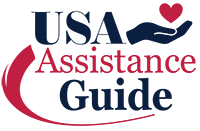With all the craziness that has ensued this year, the last thing you need is to become the victim of a Covid scam. There are people out there trying to capitalize off of the pandemic. Here are a few ways you can protect yourself.
Who is Contacting You?
Always consider the source when someone is contacting you. Regionalfinance.com states, “Government agencies do not call, text, or email. They will not call or email about economic impact payments and will not refer to payment as a “stimulus.” Check your regular mail or go directly to official government websites for information.” Additionally, “Government agencies do not contact individuals to confirm a payment or to expedite payments. Visit the IRS web page on economic impact payments to learn more.” If you’re unsure of what to think about a particular encounter, consult with a friend or family member about the solicitations you’re receiving. Report anything suspicious to your local police department.
The website goes on to say, “Beware of anyone offering goods, services, loans, or debt relief. Also, be careful of loan offers from lenders whom you don’t currently have a loan or from lenders whom you’ve dealt with in the recent past. Beware of requests for unusual payment methods such as cryptocurrency, prepaid debit cards, gift cards, money service businesses (MSB) transfers, or wire transfers. Examples of MSBs include Western Union, Xoom/PayPal, and MoneyGram.” This is yet another way scammers will try to take your money. They pose as a financial representative or maybe offer to help you obtain a loan. Often, when something seems too good to be true, it is. Just as you should scrutinize people physically going door-to-door, you should also scrutinize cold calls where people offer you money.
Say No to Sales
Be wary of people claiming to sell medical supplies door to door. That’s not how these items are distributed. It should be a huge red flag to you if there are people walking your neighborhood claiming they have items that can cure or prevent the Coronavirus. Keep in mind that there is currently no cure or vaccine for this virus. Additionally, if there was a breakthrough new treatment or remedy, they would be distributing it to the public through medical professionals, not a random door-to-door salesperson. People will try to profit off of your fear. Send these people on their way and encourage your neighbors to be cautious.
Trust Your Gut
Lastly, be extremely careful who you give your personal information or money to. If you’re receiving calls or home visits from people claiming to be contact tracers or medical professionals with a magic cure, be smart about what you tell them. Listen to your instincts to determine whether or not you should entertain them at all.
In times of economic uncertainty, your money can provide you with a sense of security. Be cautious and don’t let anyone scam you out of it.
